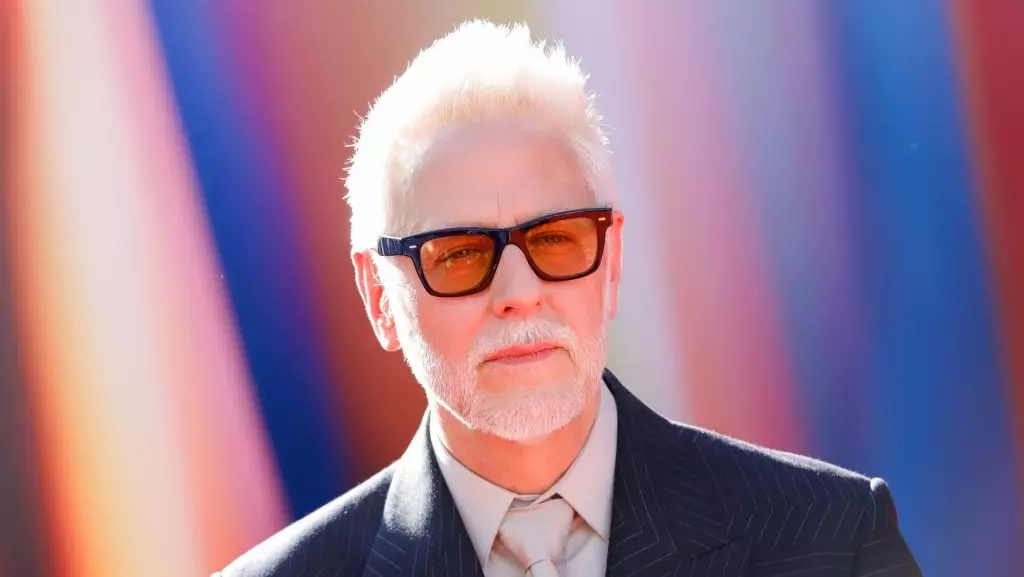James Gunn’s journey through the tumultuous landscape of Hollywood exemplifies resilience and reinvention. Once ousted from Marvel’s Guardians of the Galaxy franchise in 2018, Gunn faced a period of professional uncertainty that many would interpret as a career-ending setback. Instead of succumbing to doubt, Gunn used this adversity as a catalyst for new opportunities, ultimately steering his career toward an entirely different universe—the DC Extended Universe (DCEU), now rebranded as the DC Universe (DCU). This transition signifies more than just a change of studios; it embodies Gunn’s unwavering commitment to storytelling excellence and his readiness to embrace change.
His story reflects a critical lesson: setbacks do not define a creator’s capacity for innovation. Instead, they serve as opportunities to pivot, refine vision, and emerge stronger. Gunn’s ability to navigate the challenges of being dismissed from Marvel and then landing the reins at DC demonstrates strategic resilience. His decision to prioritize passion projects like “The Suicide Squad” showcased his creative breadth, and his subsequent role at DC signals a bold shift—one rooted in confidence and a desire to craft a new cinematic mythology.
Leadership by Vision: Breathing New Life into Iconic Characters
Gunn’s leadership philosophy is anchored in reimagining and revitalizing iconic characters. His approach to the DCU, beginning with “Superman,” is highly intentional. Rather than trying to replicate past successes, Gunn appears focused on narrating authentic, complex stories that resonate emotionally. Casting David Corenswet as Superman and assembling a diverse cast including Rachel Brosnahan, Nicholas Hoult, and María Gabriela de Faría reflects a commitment to modern storytelling. These choices signal an intent to bring fresh perspectives into familiar narratives, which can invigorate a franchise historically hampered by inconsistent tone and storytelling.
This strategic reboot also emphasizes the importance of aligning core themes with today’s cultural landscape. The “Gods and Monsters” phase suggests a focus on exploring moral dilemmas, power, and identity—topics increasingly relevant to contemporary audiences. Gunn’s reputation as a storyteller who balances humor, depth, and spectacle positions him as a guiding force capable of transforming DC’s cinematic universe into a cohesive, compelling universe that appeals to both longtime fans and newcomers.
Ethics, Loyalty, and the Art of Film Direction
Gunn’s candid reflections on his career transitions reveal a nuanced understanding of loyalty, ethics, and professional integrity. His decision to pivot from Marvel to DC, despite emotional connections and supportive colleagues at Marvel, was driven by a desire to pursue projects aligned with his creative vision. He dismisses any notion of guilt, emphasizing that his choices were influenced by opportunities that allowed him to tell stories he is passionate about.
This honesty underscores a broader debate within Hollywood: the morality of switching allegiances for career growth. Gunn’s stance—prioritizing passion over guilt—sets a pragmatic yet principled example for creators navigating industry pressures. Moreover, his affirmation that the Marvel team was supportive reflects his respect for professional relationships, even amidst industry shifts. Such transparency fosters trust with audiences and industry insiders alike, highlighting that integrity and strategic career decisions can coexist.
Transforming the Future of Superhero Cinematics
With the launch of the DCU under Gunn’s leadership, the future of superhero cinema looks poised for reinvigoration. His bold vision aims to redefine what a superhero franchise can achieve—delivering stories that blend mythic grandeur with relatable human struggles. While critics might question whether Gunn can sustain this level of storytelling depth across a sprawling universe, his track record suggests he possesses the creative fire necessary to succeed.
As “Superman” hits theaters, it symbolizes more than just another superhero film; it represents a new chapter rooted in authenticity, innovation, and bold narrative choices. Gunn’s ability to balance nostalgic reverence with modern reformulation is key to reshaping audiences’ expectations of what superhero movies can be. If he maintains this trajectory, the DCU could emerge as a rival to Marvel’s dominance, not merely in box office numbers but in storytelling quality and cultural relevance.
Gunn’s journey underscores an essential truth in Hollywood: adaptability is vital. His willingness to reinvent, challenge industry norms, and lead with passion is what will ultimately determine his legacy. The film industry, much like the characters he creates, thrives on transformation—Gunn’s career exemplifies this principle at its most inspiring.

